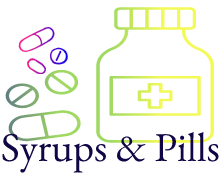About Clonazepam
Clonazepam is a long-acting medication classified under the benzodiazepine group, known for its ability to depress the central nervous system (CNS). It is commonly marketed under the brand name Klonopin and works by slowing down brain activity to induce relaxation and calmness.
Originally developed to help patients manage epilepsy and control seizures, Clonazepam has since gained recognition for treating panic disorders and is now also used to alleviate anxiety and withdrawal symptoms from substances like alcohol or other addictive drugs.
Clonazepam Effects and Potential for Abuse
While Clonazepam is widely prescribed to treat conditions such as epilepsy, its misuse is a growing concern. The drug’s calming effects make it susceptible to abuse.
When used without medical supervision or beyond the recommended dosage, Clonazepam can cause significant CNS depression. Some users resort to crushing the tablets into powder to amplify its effects, increasing the risk of dependency.
Common Signs of Clonazepam Abuse:
- Dizziness
- Vertigo (fear of heights or disorientation)
- Loss of consciousness
- Numbness
- Impaired cognitive function
- Confusion
- Poor coordination and reaction time
- Compromised judgment
- Decreased libido
Method of Using Clonazepam
Clonazepam is typically administered orally and is prescribed to control and prevent seizures. Patients are generally instructed to take the medication two to three times daily, following their doctor’s recommendations.
Factors Affecting Dosage:
- Age: Dosages for children depend on their weight.
- Medical Condition: Adjustments are made based on the severity of symptoms.
- Response to Treatment: Elderly patients often start with lower doses to reduce the risk of adverse effects.
To maximize the benefits of Clonazepam, patients must use it regularly as prescribed. If there’s any confusion about its usage, patients are advised to consult the medication guide provided with their prescription, especially when they buy Clonazepam online.
Precautions for Using Clonazepam
- Pregnancy:
Pregnant women should only take Clonazepam when deemed necessary by their doctor. Untreated seizures during pregnancy can harm both the mother and baby, but abrupt withdrawal of the drug is equally dangerous. Always consult a healthcare provider before making any changes to medication use. - Medical History:
Inform your doctor about any existing conditions such as respiratory issues or mental health disorders before starting Clonazepam. - Avoiding Risky Activities:
Patients should avoid driving or operating heavy machinery due to potential dizziness caused by the drug. - Alcohol Use:
Combining alcohol with Clonazepam can severely depress the heart and respiratory system, leading to fainting or worsening mental health symptoms. - Allergies:
If you have a history of allergies to benzodiazepines or Clonazepam itself, inform your doctor before starting the medication.
Clonazepam and Pregnancy
Should Clonazepam Be Taken During Pregnancy?
While the risks of withdrawal symptoms for women discontinuing Clonazepam during pregnancy are not fully understood, abrupt cessation is not recommended. Always consult a healthcare provider to weigh the benefits against potential risks before using or stopping the medication during pregnancy.
Breastfeeding and Clonazepam
As breast milk is derived from the bloodstream, Clonazepam consumed by a mother can pass into the baby’s system. This transfer may cause sedation in newborns, prompting some doctors to recommend alternative treatments during breastfeeding.
Key Considerations for Breastfeeding Mothers:
- Closely monitor the baby for signs of excessive sleepiness or other unusual behavior.
- Inform your doctor about your medication use to determine the best course of action.
- If the baby exhibits prolonged drowsiness, report it to a healthcare provider immediately.
Breastfeeding mothers must prioritize communication with their doctors to ensure both their health and the baby’s well-being.
By adhering to these guidelines and consulting a medical professional, Clonazepam can be used safely and effectively to manage a variety of health conditions.
